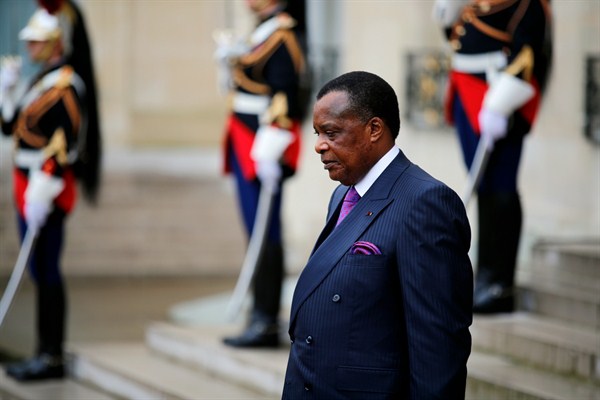It’s been a tense start to the year in Central Africa. The Democratic Republic of Congo appears to be barreling toward an election standoff, with defeated opposition candidate Martin Fayulu on Thursday denouncing “an electoral coup.” Also this week, renegade soldiers in Gabon attempted to oust President Ali Bongo, briefly taking over the state airwaves before they were arrested and two of them were killed.
Meanwhile, the Republic of Congo, which is sandwiched between those two countries, is quietly and tepidly moving ahead with a peace-building process designed to stave off just this kind of unrest. While one of the first steps in this process, a series of “dialogue platforms,” is focused on the southeastern Pool region—the site of a devastating but largely overlooked conflict that stretched from April 2016 until December 2017—it will offer clues as to whether the country as a whole can break with a cycle of crises that goes back decades.
The conflict in Pool began in 2016 after officials announced that President Denis Sassou Nguesso had won re-election. Sassou Nguesso has been head of state for 35 years in total—from 1979 until 1992, when he lost in the country’s first multiparty elections, and then from 1997 until today. All of his election victories in the democratic era have been disputed, but the 2016 vote was especially controversial. Five months before it was held, Sassou Nguesso brushed aside large-scale opposition protests and removed constitutional term and age limits that would have forced him to step down. The election itself, which Sassou Nguesso officially won with over 60 percent of votes cast, was widely seen as fraudulent.

